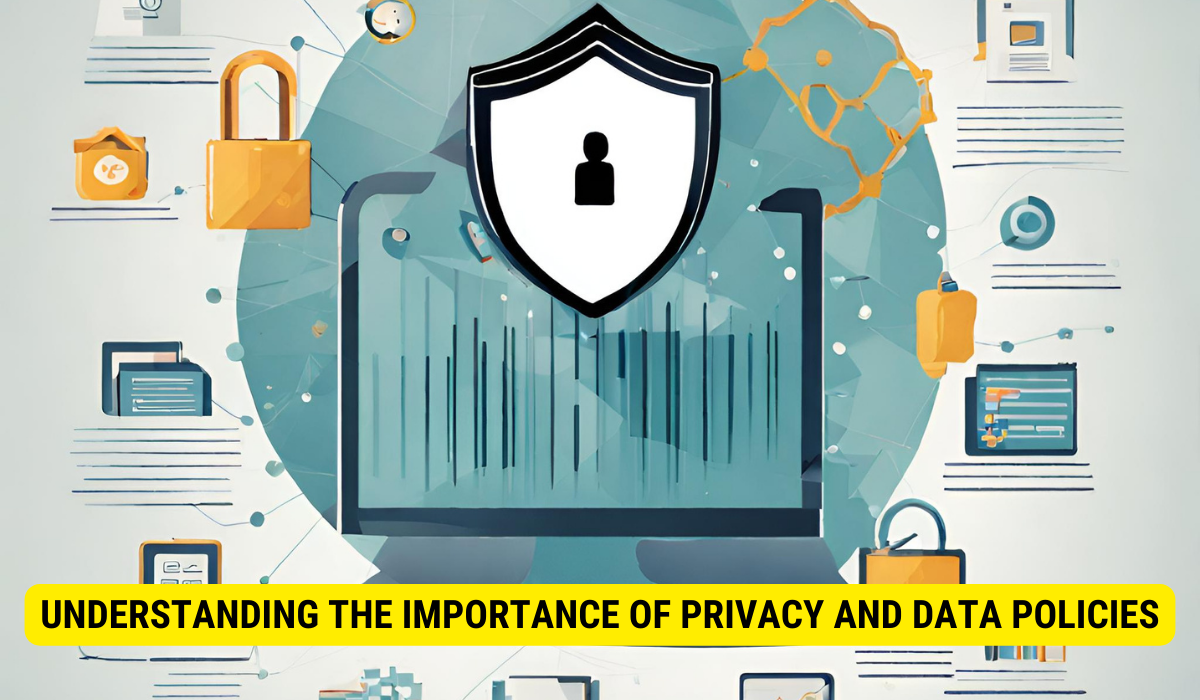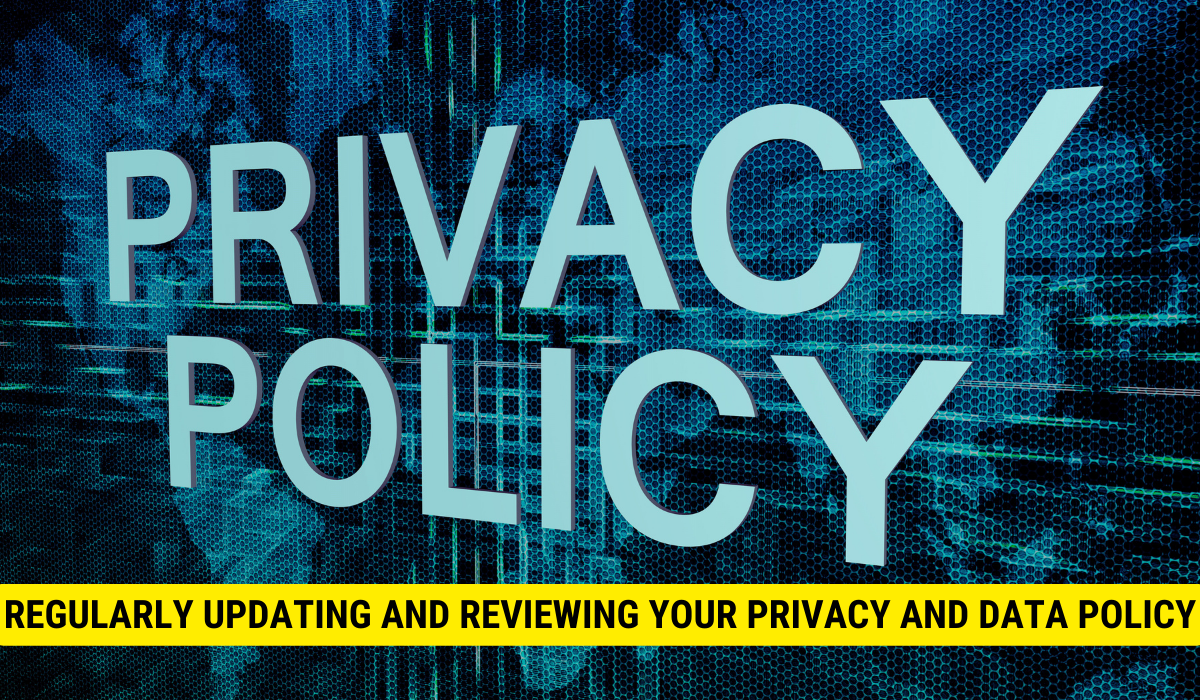Yes, organizations are required by law to have policies regarding privacy and data. The specifics of these requirements may vary across different regions and industries, but having such policies is vital to ensure compliance with privacy laws and to protect the personal information of customers and users.
Privacy and data protection have become increasingly important for organizations in today’s digital age. With the ever-growing risks associated with cyberattacks and data breaches, businesses must have clear policies in place to safeguard the privacy of their clients and ensure the security of their sensitive information. But are organizations required by law to have such policies? Together, we will determine the importance of privacy and data policies, the legal requirements, and the consequences of non-compliance.
Understanding The Importance Of Privacy And Data Policies

To comprehend the necessity of privacy and data policies, it is essential to understand privacy’s role in today’s digital age. With the proliferation of technology and the vast amount of personal data collected, individuals are increasingly concerned about their privacy rights. Organizations, therefore, need to address these concerns by implementing comprehensive policies that outline how they handle and protect personal data.
Furthermore, data policies are not only concerned with protecting privacy, but they also ensure that organizations handle data responsibly and ethically. By establishing data collection, storage, and usage guidelines, organizations can build trust with their clients and gain an inexpensive advantage in the market.
The Role of Privacy in Today’s Digital Age
Privacy is no longer a luxury; it has become an individual’s fundamental right. In an era where personal information is constantly being shared and stored digitally, the need for privacy protection has never been more pressing. Privacy policies assure individuals that their data will only be used for intended purposes and will not be shared without their consent.
Moreover, privacy policies demonstrate an organization’s commitment to transparency and accountability. By transparently detailing the methods of gathering, handling, and storing personal data, companies can foster confidence among their clientele and position themselves as diligent data guardians.
Why Data Policies Matter for Organizations
Data policies are crucial for protecting individual privacy, safeguarding an organization’s reputation, and mitigating legal risks. Organizations rely heavily on assembling and analyzing data to make informed business decisions and offer personalized services in today’s data-driven world.
However, organizations risk mishandling sensitive information, falling victim to data breaches, or violating privacy laws without proper data policies. This can lead to severe legal consequences, financial penalties, and damage to the organization’s brand and reputation.
Additionally, data policies help organizations establish a framework for data governance. This includes defining roles and tasks for data management, ensuring compliance with relevant regulations, and implementing security actions to protect data from unauthorized access or loss.
Additionally, data guidelines significantly contribute to nurturing an environment focused on data protection and safety within a corporation. By explicitly conveying the significance of safeguarding data and setting clear directions for staff, institutions can lessen the likelihood of internal data exposures and ensure every member is aware of their responsibility towards data confidentiality.
What’s more, such data principles can also bolster relations with consumers. When clients believe their information is treated with diligence and consideration, their trust in the company grows, prompting them to interact with its offerings continually. This can enhance client loyalty, repeated patronage, and favorable referrals.
Furthermore, data policies can also serve as a competitive advantage for organizations. In a progressively data-driven world, customers are becoming more discerning about the companies they share their personal information with. By having robust data policies, organizations can differentiate themselves from their participants and attract privacy-conscious customers who value their data protection practices.
In conclusion, privacy and data policies are paramount in today’s digital age. They protect individual privacy rights and safeguard organizations from legal risks and reputational damage. By implementing comprehensive data policies, organizations can build customer trust, establish a data privacy and security culture, and gain a competitive advantage in the market.
Legal Requirements for Privacy and Data Policies
Protection of personal data and privacy guidelines is paramount for entities wishing to safeguard the personal details of their clientele and users. Although the precise legal stipulations for these rules might fluctuate among regions, there are universal components that institutions must heed while framing their regulations.
A pivotal element is being cognizant of varying privacy statutes spanning distinct areas. The privacy rules can vary significantly from one nation to another and even within sub-regions. For instance, while the General Data Protection Regulation (GDPR) is the benchmark for data security within the European Union, the California Consumer Privacy Act (CCPA) defines the privacy entitlements for Californians.
Recognizing the distinct privacy statutes relevant to an institution’s activities is fundamental. Entities should acquaint themselves with such norms and confirm their regulations align with the particular mandates. This involves grasping individual entitlements offered by these rules, encompassing the privilege to oversee and access personal data.
Beyond grasping universal privacy rules, entities must also discern sector-specific guidelines relevant to their operations. Take healthcare providers, for instance, bound by the Health Insurance Portability and Accountability Act (HIPAA). This act dictates strict criteria for managing and safeguarding patient records, necessitating the deployment of protective measures to maintain the privacy, authenticity, and accessibility of such data.
By identifying and adhering to these legal obligations, organizations can avoid costly penalties and protect themselves from legal disputes arising from non-compliance. It is significant for organizations to regularly review and update their privacy and data procedures to ensure they remain in submission with any changes in the legal landscape.
Furthermore, organizations should consider implementing privacy by design principles when developing their policies. Privacy by design involves integrating privacy considerations into the plan and operation of systems, processes, and products. This proactive approach ensures that privacy is considered from the outset and throughout the lifecycle of data processing activities.
Organizations should also consider appointing a Data Protection Officer (DPO) to oversee the application and compliance of privacy and data protection measures. The DPO can provide expert advice and guidance on privacy matters and act as a point of contact for individuals and regulatory authorities.
In conclusion, legal requirements for privacy and data policies are crucial for organizations to protect the privacy rights of individuals and comply with applicable laws. Organizations can develop comprehensive policies that safeguard personal information and maintain trust with their customers and users by understanding the specific legal obligations and industry standards.
Consequences of Non-Compliance with Privacy and Data Laws
Legal Ramifications for Non-Compliance
The penalties for failing to comply with privacy and data laws can be severe. Regulatory bodies can impose hefty fines, sanctions, and legal actions against organizations that neglect their privacy responsibilities. In extreme cases, non-compliant organizations may even face criminal charges.
Organizations must understand the potential legal ramifications and take the necessary steps to ensure compliance with privacy and data laws to protect their interests and maintain their operations.
Impact on Business Reputation and Trust
Beyond the legal consequences, non-compliance can harm an organization’s reputation and customer trust. In the face of a data breach or privacy violation, customers may lose confidence in the organization’s ability to protect their personal information.
This loss of trust can be hard to regain and may significantly damage the organization’s brand, customer base, and overall business performance. Therefore, organizations must prioritize privacy and data protection as a risk management strategy.
Creating a Comprehensive Privacy and Data Policy
Key Elements to Include in Your Policy
When creating a privacy and data policy, including specific elements that address the organization’s data handling practices is important. These elements may include:
- A statement of the organization’s commitment to privacy and data protection
- An explanation of the types of personal information collected
- The purpose for which the information is collected
- How the information is stored and protected
- The circumstances under which the information may be shared with third parties
- The rights of individuals regarding their data
By covering these key elements, organizations can demonstrate compliance with privacy laws and reassure individuals that their personal information is being handled responsibly.
Ensuring Your Policy is Legally Compliant
Developing a comprehensive privacy and data policy is not enough; organizations must also ensure that their policy is legally compliant. This involves keeping up with the latest privacy laws and rules changes and updating the policy accordingly.
Furthermore, organizations should seek legal advice or consult with privacy experts to ensure their policy meets the required legal standards. Regular audits and assessments can also help identify gaps or areas for improvement in policy compliance.
Regularly Updating and Reviewing Your Privacy and Data Policy

The Importance of Keeping Policies Up-to-Date
Privacy and data protection laws are constantly developing, with new regulations being introduced and existing laws being amended. As a result, organizations must stay vigilant and adapt their policies to reflect these changes.
By keeping policies up-to-date, organizations can demonstrate their commitment to compliance and ensure they remain aligned with evolving legal requirements. Regular updates also allow organizations to incorporate new best practices and industry standards, strengthening their overall data protection framework.
Best Practices for Reviewing and Updating Policies
When reviewing and updating privacy and data policies, organizations should consider the following best practices:
- Establish a defined schedule for policy reviews and updates
- Assign responsibility to a designated individual or team for policy management
- Monitor changes in privacy laws and regulations
- Seek input from relevant stakeholders, including legal counsel and privacy professionals
- Communicate policy updates to employees and ensure their understanding and obedience
By following these best practices, organizations can preserve a robust privacy and data protection outline and reduce non-compliance risks.
Key Takeaways
- Fundamental Right: In the digital age, privacy is fundamental, and organizations must ensure they respect and uphold this right.
- Legal Variation: Privacy laws differ globally. Familiarizing with and adhering to these laws is imperative for organizational operations.
- Business Impact: Beyond legal consequences, non-compliance can severely damage an organization’s reputation and customer trust.
- Comprehensive Policies: A thorough privacy and data policy should address the organization’s data practices, ensuring transparency and accountability.
- Dynamic Nature of Laws: Privacy and data protection laws are continuously evolving. Regular reviews and updates to policies are vital to remain compliant.
FAQs
Why are privacy and data policies important for organizations?
Privacy and data policies protect individual rights, safeguard organizations from legal risks, and maintain customer trust.
Do privacy laws differ from country to country?

Privacy laws vary significantly from one country or even within different states or provinces.
What can happen if organizations don’t comply with privacy and data laws?
Non-compliant organizations can face severe legal consequences, hefty fines, damage to their reputation, and loss of customer trust.
What are some essential elements to include in a privacy and data policy?
Key elements include a commitment statement, types of information collected, the purpose of collection, storage methods, sharing circumstances, and individual rights regarding their data.
How often should organizations review and update their privacy and data policies?
Organizations should regularly analyze and update their policies, especially in light of evolving privacy laws and best practices.
Conclusion
As organizations continue to collect and process increasing amounts of personal data, the need for privacy and data policies becomes more critical. Not only do these policies ensure legal compliance, but they also reassure individuals that their personal information is being handled responsibly. By implementing comprehensive policies, regularly reviewing and updating them, and staying informed about privacy laws, organizations can enhance their reputation, build trust with their customers, and protect themselves from legal risks.
